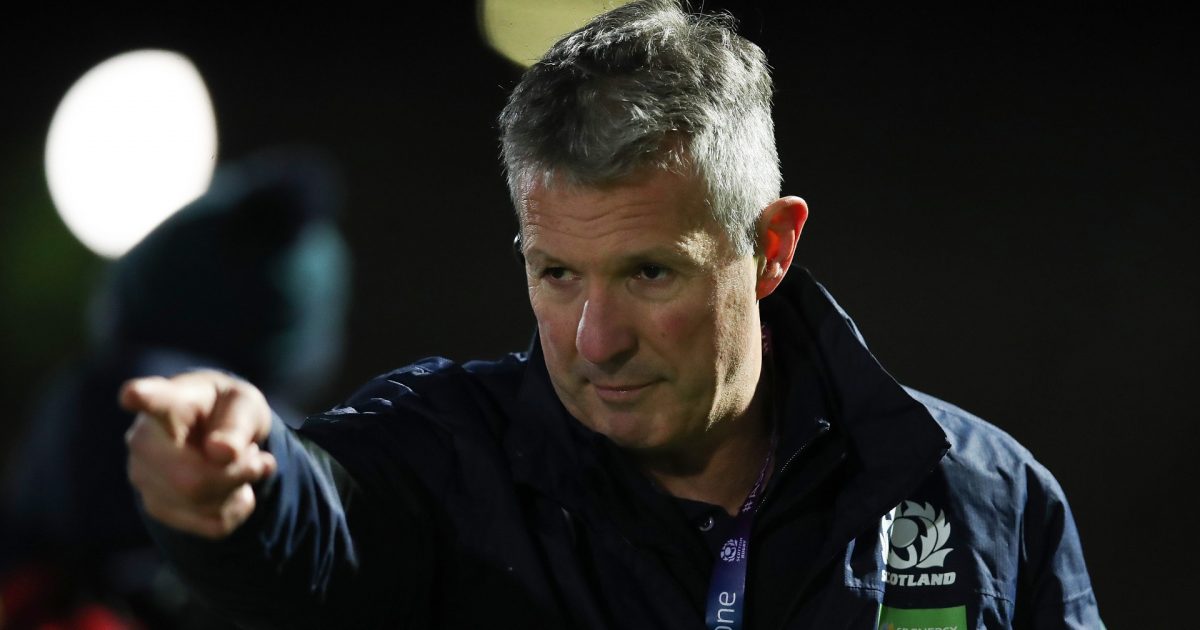Sean Lineen quotes Clint Eastwood as he quits Scottish Rugby

Sean Lineen, the original ‘kilted Kiwi’ who was a key player in the 1990 Scotland Grand Slam win, has left Scottish Rugby after a stint of more than 30 years which saw him continue as a coach and administrator after hanging up his boots. Lineen, who celebrates his 60th birthday on Christmas Day, said: “For me, this has been a really hard decision. But it is the right time to leave.”
Lineen departs at the conclusion of a review of the structure of the Scottish Rugby high-performance department, overseen by director of performance rugby Jim Mallinder, who is aligning the department to Scottish Rugby’s new three-year strategy launched earlier this year. This new strategy underpins the changes required within our high-performance structure to drive the professional game in Scotland forward over the next few years.
It is an amicable parting of the ways. “I have been involved in Scottish Rugby for a lifetime and I feel lucky and very privileged to have been involved in the game here, firstly as a player and coach with Boroughmuir, then with the national team in both roles and to have played for Edinburgh and coached Glasgow Warriors,” continued Lineen.
“I will always be hugely enthusiastic and passionate about Scottish Rugby – everyone knows that. There are so many good things going on just now: uppermost amongst them, the turbo-charging of investment into the pro-teams; and the improved links between our best young players, training and playing, with the pro-teams. And it’s all about creating and developing competitive environments.
“Over the last nine years, the work we have done to develop our young talent and the national age-grade programmes – not just with the under-20s but getting competitive programmes in place at U16, U17, and U19 – has been the right way to go, for coaches as well as players.
Wallabies legend David Campese has overtaken All Blacks great Doug Howlett to take the right wing spot in a fan-voted all-time XV. #RugbyPassHallofFame https://t.co/cffirnQPV1
— RugbyPass (@RugbyPass) December 22, 2021
“Since 2013 I’ve worked in my roles as head of international age-grade and then head of academies to bring the youngsters through a visible pathway and it is also been gratifying to see coaches like John Dalziel, Steve Lawrie, and Peter Murchie graduate from their experience with the U20s to posts with the national and pro-teams. “
Lineen, who was part of Frank Hadden’s national management team when Hadden became Scotland head coach in 2005, reflected that 17 of the 23 players on duty for Scotland’s opening victory of the 2021 Autumn Nations Series against Tonga were products of the national U20 set-up.
Lineen intends to “take a wee breather” before deciding on his next steps. “I always remember the Clint Eastwood quote. At 91 he was asked: ‘What’s the secret to staying young?’ And his answer: ‘Don’t let the old man in.’ So, for me, I’ll be determined not to let the old man in. I feel physically and mentally very active. I love my cold-water swimming in the sea and I’m playing a lot of tennis (rubbish second serve) and cycling,” he explained.
A police officer in New Zealand before coming to Scotland, Lineen described that journey across the world as “the best decision I ever made in my life”, but he doesn’t dwell on the 1990 Grand Slam as a highlight. “First meeting my wife Lynne at an aerobics class that I went to with Norrie Rowan would be a definite highlight!
“Helping Glasgow Warriors to two play-offs in the then Magners League was absolutely massive and building the whole ‘Whatever it takes’ culture at Glasgow is something I look back on with immense pride. Keeping London Scottish up when I had been invited to be director of rugby there in 2016 and, since 2013, the work with Scotland under-20s.
“The win that we enjoyed in North Wales in March 2020 just before lockdown when we scored 50 points was special and to see the players and parents celebrate afterwards makes it so worthwhile.
“Most of all I have met some fantastic people within the rugby family and in the last few weeks, I have been out and about. I was at the Dollar Academy vs Stewart’s-Melville school game, and I took a table of ten at hospitality at Heriot’s vs Highland in the Tennent’s National League Division 1 with some of my old friends to kick start my 60th.”
Director of performance rugby Mallinder added: “Sean has contributed a huge amount to Scottish Rugby over the last 30 plus years, first as a player, then as a coach. Over the last nine years, combining roles of coach and administrator, he has put his stamp on the development of our young talent and the national age-grade programmes. It has been a hard decision for him to make and he leaves with sincere thanks and affection from all corners of the game.”









































































